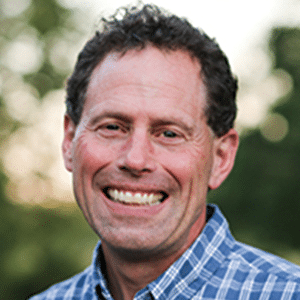Election Preparation and the Role of the College Union
Each presidential election cycle in the United States includes a lot of hype, and 2024 feels unusually super-hyped to the degree that folks are either highly anxious about the outcome or numbed and avoiding thinking about the outcome. Polarization is no longer new, but the divide among our citizenship seems wider than most of us can remember. And the drama that is playing out in real life is wilder than anything created for TV viewing on Netflix’s House of Cards. President Biden’s poor debate performance brought into question his capabilities to lead the country as an octogenarian, ultimately leading him to withdraw his re-election bid, and an assassination attempt was made on former President Trump at a campaign rally. While it all feels overwhelming, we know this election is extremely important to the future of the United States. How do we prepare, as individuals and higher education leaders, for the election and all that it will bring, as well as the aftermath with whichever candidate is elected president?
The first thing each of us must decide is whether we will vote in the election and for whom. Yes, it’s our civic responsibility to vote, yet only 60% of eligible voters in the United States cast a ballot. Many I’m sure ask themselves whether their vote matters. I get that, especially as many of us live in either a solid “red” or “blue” state, unlikely to change the tide of the dominant political party. However, elections can be surprisingly close. In 1800, Thomas Jefferson was elected president by one vote in the U.S. House of Representatives after a tie in the Electoral College. In 1994, a Wyoming House of Representatives seat was decided by drawing a ping pong ball from a cowboy hat after a tie vote. And in 2000, George W. Bush won Florida by only 537 votes out of nearly 6 million cast, which decided the presidential election.
In many ways our vote counts beyond whether our candidate wins. While the Electoral College determines the winner, the popular vote sends a message in terms of political mandate and public perception. This can have an impact on policy decisions and future elections. Additionally, in a presidential election, we are also voting for local and state candidates, which may have a more direct impact on our day-to-day lives.
I’m baffled by the idea that undecided voters are going to be the difference in who is elected president—at least for 2024. Is it possible that someone really is undecided? Aside from third-party candidates, most people surely have a pretty good idea of the positions, skills, and characteristics of the primary candidates. It seems that people vote based on their personal values, key political issues, and their preferred political party. Certainly, other factors play a role, like current economic conditions, media coverage, and influence from friends and social groups. Unfortunately, I think people also cast their vote based on who they like as a person, or more often than not, who they don’t like. Rather than a popularity contest, I wish our selection was closer to how we interview and hire for positions in our own organizations. What’s your experience leading a large workforce? How do you engage stakeholders in decision-making? What does success look like in four years with you in this role?
In the end, votes will be cast on November 5, and someone will be elected president to begin their term in January 2025. Leading up to November, our campuses are likely to be highly engaged in activities related to the election, some constructive and others potentially disruptive. As a microcosm of society, the tension and anxiety on campus will be heightened, and the role of the college union to provide avenues for active dialogue while advancing campus community will be more important than ever. We are well-positioned to support students, no matter their personal and political values, to navigate a contentious presidential election, to use critical thinking and dialogue as tools for engaging in campus conversations, and to safely express themselves within such a highly politicized environment. Consider some of the following ideas to prepare and engage your campus.
- Encourage students to vote through student organization voter registration drives, providing avenues to notarize ballots and other election materials and making information available on the election process and where and how to vote.
- Facilitate programs designed to teach students how to engage in difficult yet respectful conversations with people who have different opinions.
- Plan for resources and programs post-election to address the emotions students may be feeling and to deescalate frustration about the election process or results.
- Prepare messaging, even for internal use, if the university manages broader communications, that acknowledges the contentious election and the role of the union to advance campus community and support all student voices.
- Offer stress reducing and wellness activities and promote available mental health resources.
Also check out resources and links available on the ACUI website, such as the Constructive Dialogue Institute’s 2024 election guidebook, student voting and college political campaign-related activities put out by the American Council on Education, and the Students Learn Students Vote Coalition. Additionally, ACUI will have webinars before and after the election focused on helpful tools and resources, partnering on campus, free speech, and post-election reflection.
College union professionals will be busy in the coming months, encouraging civic engagement, planning watch parties, and supporting students as they experience this year’s presidential election. This work is important, especially as we think about one of the key tenants of the role of the college union to educate students in leadership and social responsibility and to offer firsthand experiences in global citizenship. Elections serve as the cornerstone of a functioning democracy, and there is no greater platform for us to teach students how to participate.

